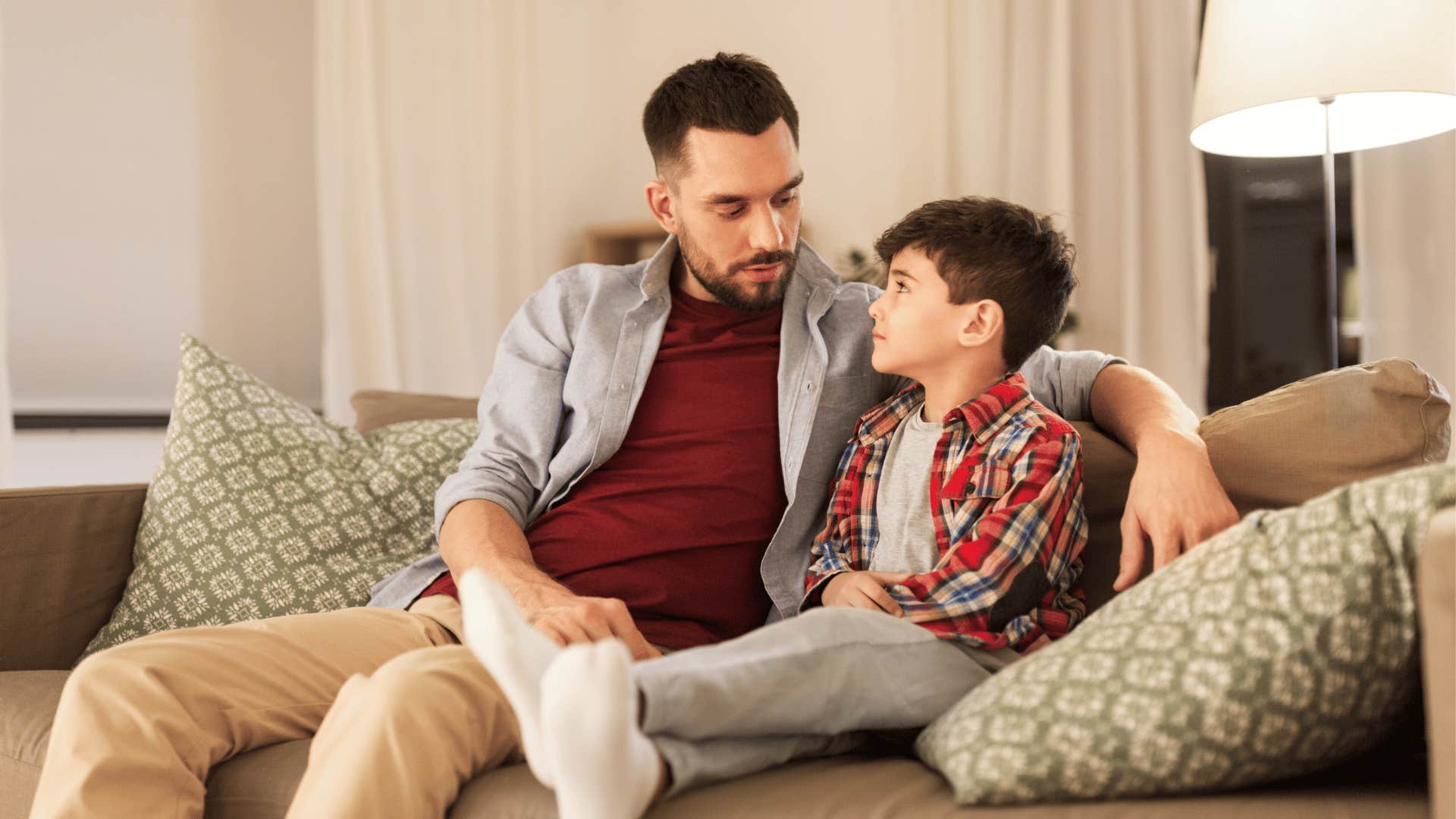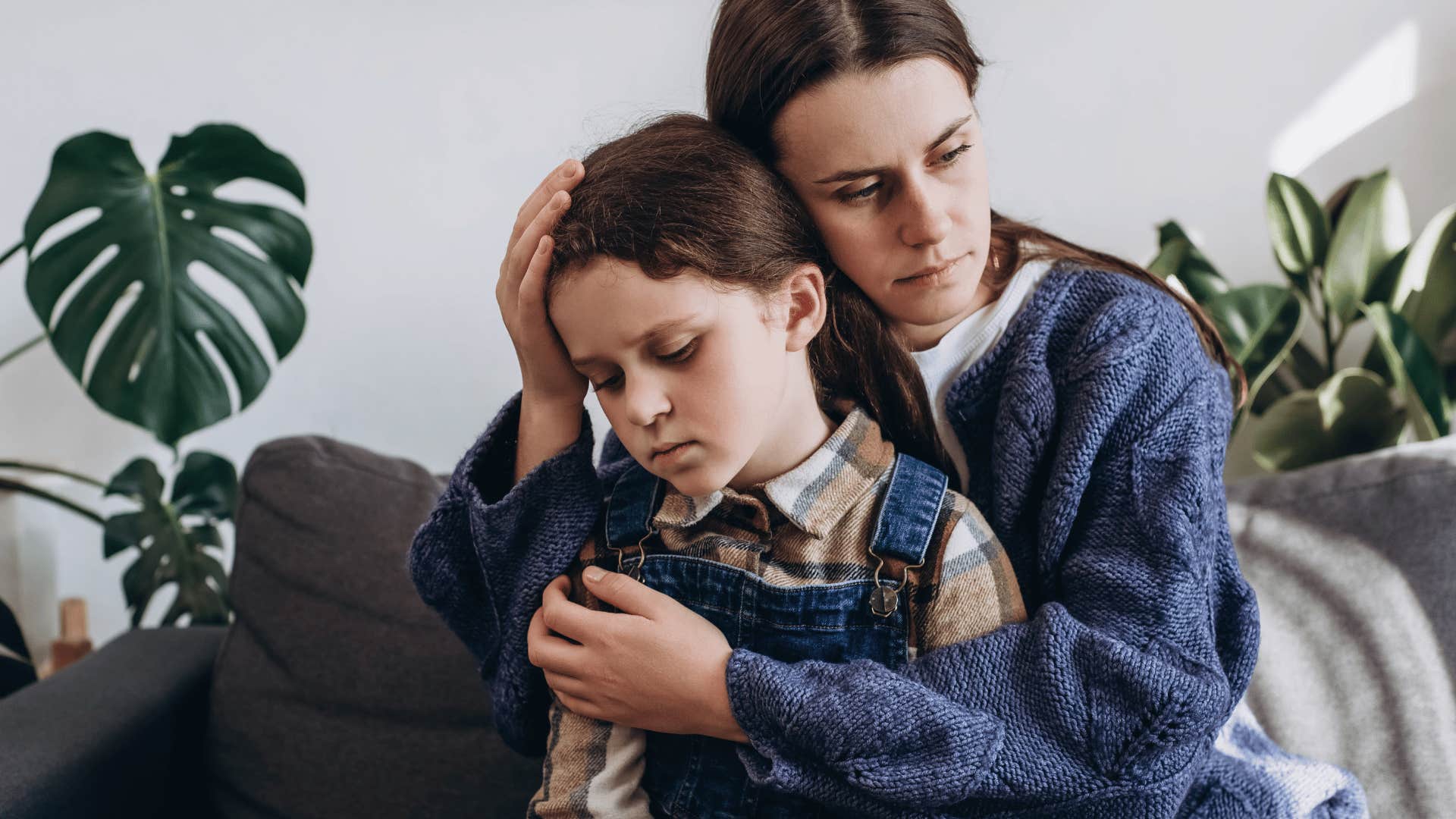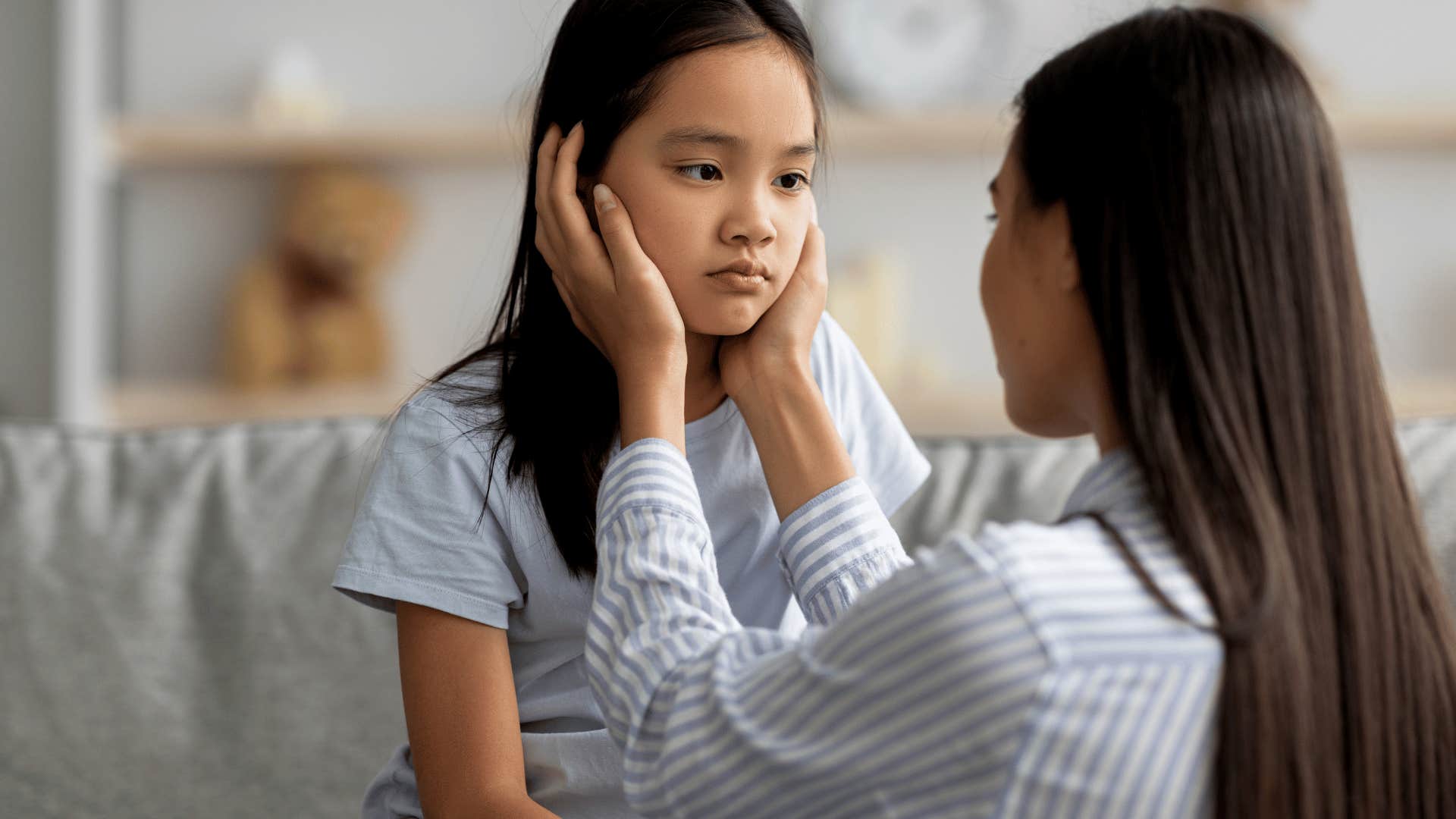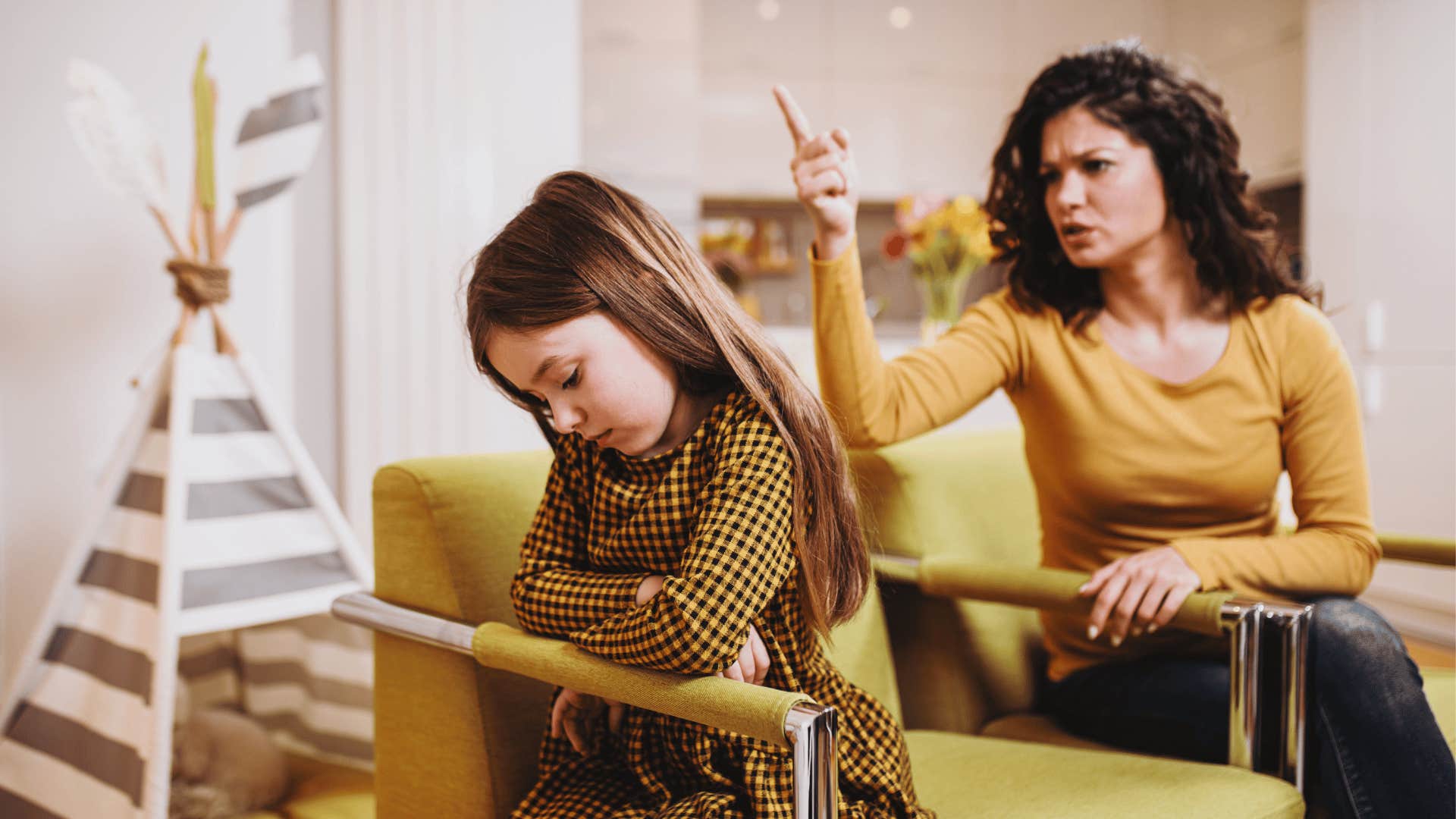5 Signs Your Parents Trauma Dumped On You As A Kid & It’s Affecting You Now
Inherited trauma doesn’t belong to you, but healing does.
 Volodymyr TVERDOKHLIB | Shutterstock
Volodymyr TVERDOKHLIB | Shutterstock As kids, we’re often told that our parents are our rocks. They are the people who provide safety, love, and guidance. But what happens when that rock is cracked by their own unresolved pain? Trauma dumping is when parents unknowingly unload their emotional burdens onto their children, leaving deep scars that follow into adulthood. It’s like being handed a heavy backpack full of worries, fears, and unresolved issues and being forced to carry it.
The problem? Over time, those emotional weights can shape everything from self-worth to relating with others and coping with personal struggles. Recognizing the signs of this emotional spillover is the first step toward healing, however.
Here are five signs your parents trauma dumped on you as a kid and it’s affecting you as an adult:
1. They overshared their adult problems with you
 Ground Picture | Shutterstock
Ground Picture | Shutterstock
When your parents overshared their adult problems with you as a kid, it’s almost like they handed you a burden you weren’t prepared for. As a result, you might have felt like you were responsible for things that had nothing to do with you, like navigating their struggles or being the emotional caretaker before you even knew how to take care of yourself.
Fast forward to adulthood, and that weight can still stick with you. It shows up in the way you manage relationships, deal with stress, or even set emotional boundaries. "We draw boundaries around parts of ourselves we’re willing to share with others and what we like to keep private," said Andrae Brandt, Ph.D. M.F.T. You might notice you’ve absorbed patterns that make it harder to separate your feelings from others by always trying to be the fixer or feeling like you have to carry the emotional burden of those around you.
2. They used you as a therapist
 Yurii_Yarema | Shutterstock
Yurii_Yarema | Shutterstock
Imagine being a child and instead of leaning on your parents for comfort, you end up holding them up emotionally. When parents use their kids as emotional sounding boards, essentially turning them into little therapists, it creates a confusing space.
"In adult survivors of childhood emotional abuse, oversharing can be driven by fear or need for validation," said Daniel S. Lobel, Ph.D.
As a kid, you don’t have the tools to process adult issues, whether it’s financial stress, relationship drama, or personal turmoil. But somehow, you're expected to absorb it all, listen, and offer support, all while you’re still figuring out your own world.
Fast forward to adulthood, and that childhood responsibility doesn’t just disappear. It lingers, leaving lasting marks on how you handle relationships, emotions, and your own well-being.
3. They projected fears and anxieties onto you
 Prostock-studio | Shutterstock
Prostock-studio | Shutterstock
When parents sit down with their children and start listing all the dangers of the world, it’s often with the best intentions, to protect them. But sometimes, what starts as a protective instinct can turn into something heavier, like fear, that gets passed down like an emotional inheritance. Parental anxieties can slip into their warnings, and before they know it, they’ve turned their child’s world into a minefield of imagined dangers.
A 2010 study found that emotional cues from parents, especially anxious behaviors, can influence how children perceive and react to stressful situations.
Children raised in an environment where danger is constantly emphasized may start to view the world with anxiety-colored glasses. Simple tasks like playing outside, trying new things, or meeting new people could trigger overwhelming feelings of worry, as they’ve learned to associate the world with potential harm.
Sadly, those anxieties don't go away in adulthood, and kids who feared the world usually become adults with a similar affliction.
4. They displayed their unregulated emotions around you
 hedgehog94 | Shutterstock
hedgehog94 | Shutterstock
Imagine a child sitting in a room, playing with their toys or coloring peacefully, when suddenly, the air shifts. A parent who’s usually calm and steady suddenly bursts out in anger, frustration, or tears. The child freezes, unsure of how to react.
When parents unleash their emotions in an unregulated way, it’s like tossing a stone into a calm pond — everything ripples. Kids are like emotional sponges, soaking up the energy around them, and they’re often left scrambling to make sense of what they’re feeling.
"Parents play a large role in shaping their child’s emotion regulation skills early in life," explained Kristin A. Buss, Ph.D. Adults who were exposed to emotional unpredictability as children might struggle to manage their own emotions effectively. This might lead them to be overly critical of themselves and others, fearing that any mistake could cause another emotional storm or lead to rejection.
5. They constantly compared their experiences to your childhood struggles
 Gladskikh Tatiana | Shutterstock
Gladskikh Tatiana | Shutterstock
When you’re going through a tough time, struggling with something that feels bigger than you, and you turn to your parents for comfort. Instead of receiving empathy or understanding, your parents said, "Well, when I was your age, I had it way worse," or "You think that’s bad? You don’t even know what real hardship is." Suddenly, your pain is diminished, and your emotional world feels invisible.
"People may struggle to form healthy relationships with their children if they did not have healthy examples," said Kaytee Gillis, LCSW. Here’s where things get tricky. What may have been manageable for one person might feel overwhelming for someone else.
Nearly two-thirds of adults in the U.S. have had at least one Adverse Childhood Experience (ACE) before their 18th birthday. Without intervention or therapy, these patterns can continue, making it difficult to break the cycle of trauma.
One of the most important aspects of healing from trauma is feeling like your experience is valid. When parents compare instead of comfort, it can make a child’s experience feel secondary, and that doesn't go away in adulthood.
Sylvia Ojeda is an author with a decade of experience writing novels and screenplays. She covers self-help, relationships, culture, and human interest topics.

